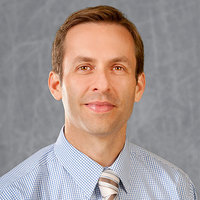"Soft, Stretchable, and Reconfigurable Materials for Electronics and Actuators"
Abstract:

This talk will describe efforts in our research group to control the shape and function of soft materials (liquid metals, polymers and hydrogels) for applications that include stretchable electronics, soft robotics, and self-folding polymer sheets. The research harnesses interfacial phenomena, micro fabrication, patterning, and thin films. The talk will discuss two topics:
- Gallium-based liquid metals have low-viscosity, low-toxicity, and can be patterned due to a thin, oxide skin that forms rapidly on its surface. It is possible to pattern the metal by injection into microchannels or by direct-write 3D printing to form ultra-stretchable wires, deformable antennas, and microelectrodes. It is also possible to remove / deposit the oxide using electrochemistry to manipulate the surface tension of the metal over unprecedented ranges and thereby control the shape and position of the metal for shape reconfigurable devices.
- Self-folding polymers sheets that change shape in response to light. These sheets are a form of shape memory polymers that are compatible with 2D patterning techniques including lithography, inkjet printing, and roll to roll processing. The appeal of this work is converting 2D patterns into 3D shapes (similar to origami) in a hands free manner.
Biography:
Dr. Michael Dickey, Professor in the Department of Chemical and Biomolecular Engineering at NC State University received a BS in Chemical Engineering from Georgia Institute of Technology (1999) and a PhD in Chemical Engineering from the University of Texas at Austin (2006) under the guidance of Professor Grant Willson. From 2006-2008 he was a post-doctoral fellow in the lab of Professor George Whitesides at Harvard University. In August 2008, he joined the Department of Chemical & Biomolecular Engineering at NC State University where he is currently an Alumni Distinguished Professor. He completed a sabbatical at Microsoft in 2016. Michael’s research interests include patterning and actuating soft materials by studying and harnessing thin films, interfaces, and unconventional fabrication techniques.
Sponsored by the Department of Chemical and Biomolecular Engineering